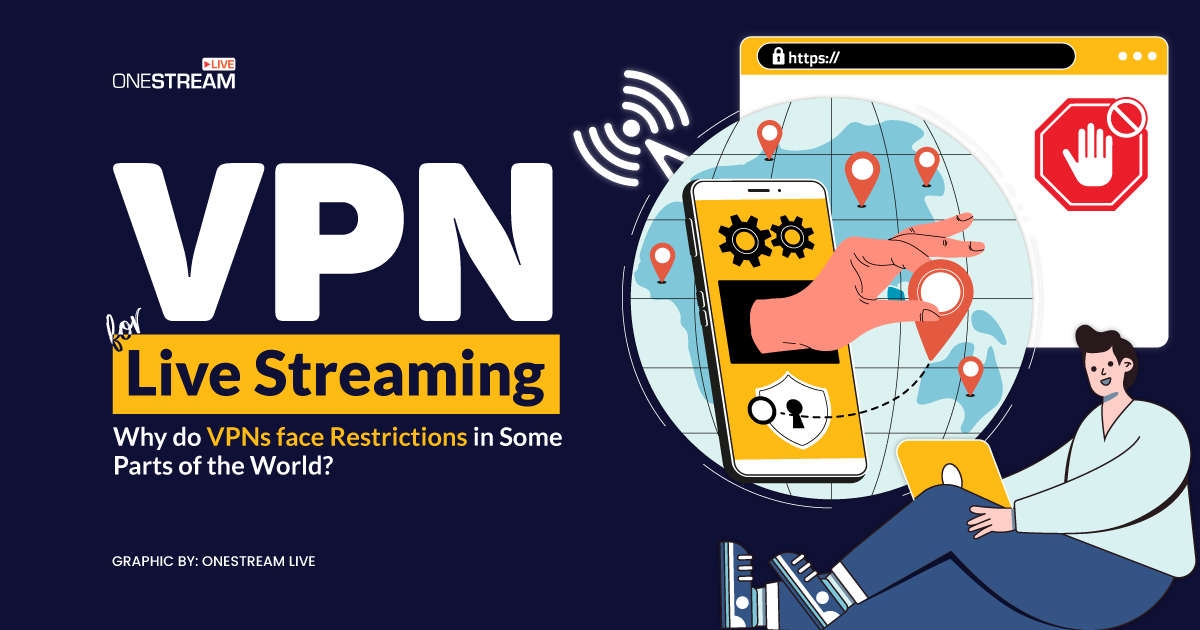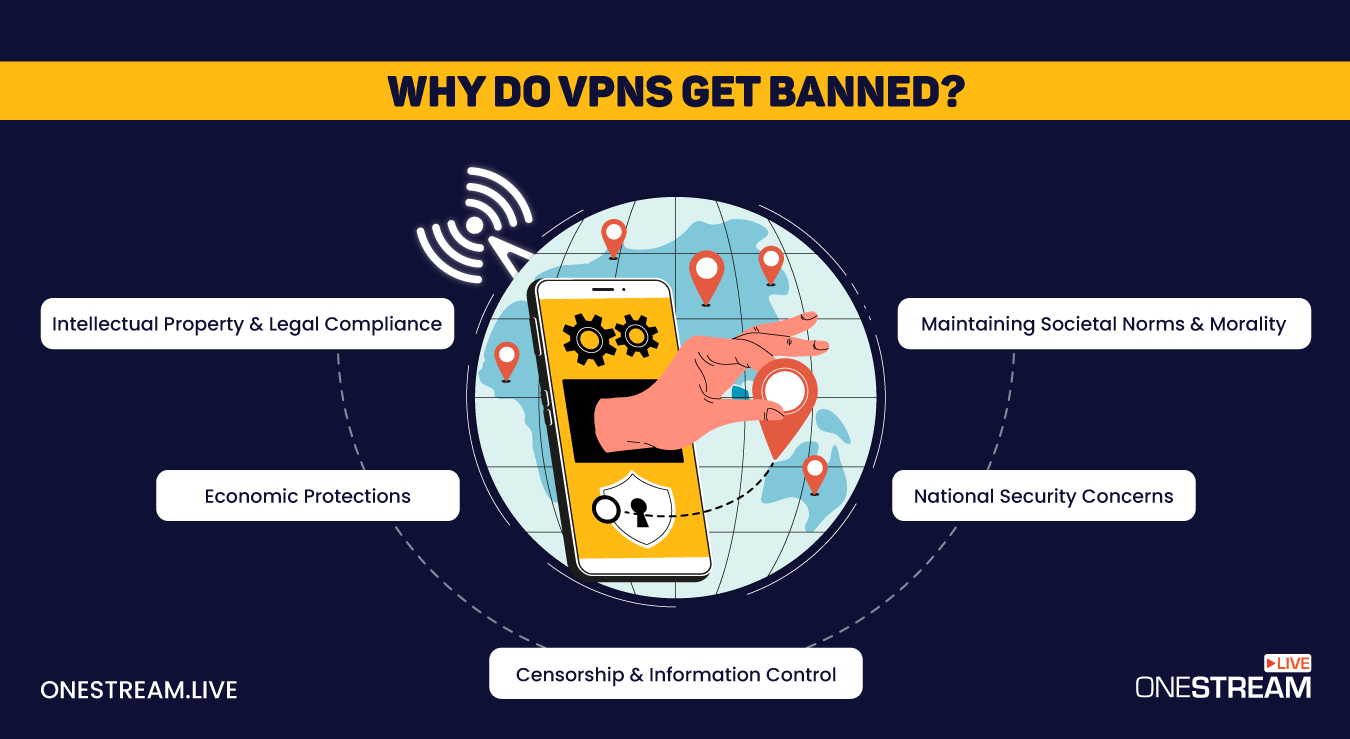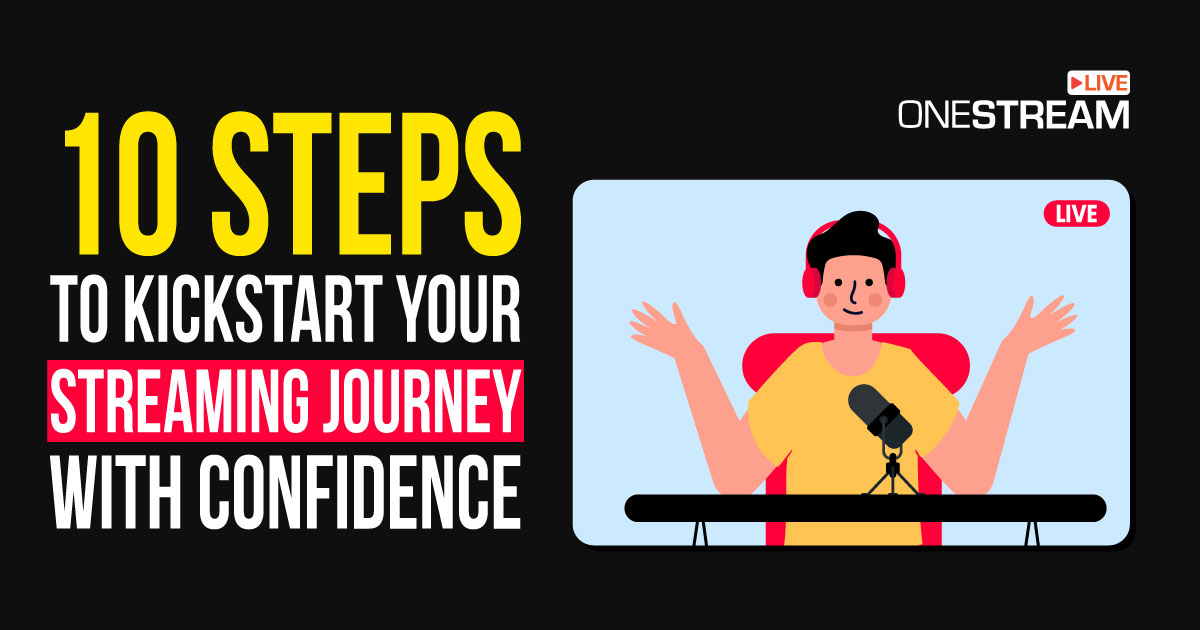In an age where digital freedom and privacy are more valued than ever, the use of Virtual Private Networks (VPNs) has become widespread. However, despite their popularity, VPN restrictions are severe in some parts of the world.
This article explains the reasons for such restrictions. It also explains VPN functionality and the rationale for prohibition in certain regions. Lastly, it gives insights into whether these restrictions can be effectively bypassed.
In this Article:
What is a VPN, and How Does it Work?
To explain and make sense of the restrictions, it’s important to define what a VPN is. Virtual Private Network or VPN, is a service that allows you to connect to the internet via a server run by usually a provider. All data traveling between your computer, phone, or tablet and this “VPN server” is securely encrypted. As a result of this setup, your IP address is masked by the server’s IP address. This way, it becomes harder for websites and third parties to track your online activity.
Talking about services, avoiding free VPNs is usually the most reasonable as they jeopardize your privacy. You don’t have to go overboard with your budget, as there are good options for cheap monthly VPN subscriptions.
The best providers offer robust encryption and numerous servers across the world. VPNs with no logs policy and easy-to-use software also should be your priority in selecting a provider.
Reasons For VPN Restrictions
There are a plethora of reasons for VPN restrictions across the globe. Usually, this type of restriction stems from the preferences of the government which countries have. Here are five key motivators for VPN bans.
1. National Security Concerns
Citing national security concerns is how often governments justify VPN restrictions. The argument is that VPNs can facilitate anonymous communication and data transfer. Thus, the usage of the software makes monitoring threats or illegal activities challenging for authorities.
This anonymity can be exploited for cybercrimes, terrorism, or subverting state control. As a result, some countries impose strict regulations or outright bans on VPN use to maintain surveillance capabilities and prevent misuse.
2. Censorship and Information Control
In many countries, especially those with authoritarian regimes, VPNs are banned as a means of enforcing internet censorship. Governments restrict their citizens’ ability to bypass internet filters and access the global internet freely by preventing VPN access. This ensures that only government-approved information and media are accessible.
As a result, such censorship helps maintain control over public discourse, political opposition, or any content considered undesirable.
3. Maintaining Societal Norms and Morality
Certain governments restrict VPNs to uphold societal norms and morality. In these regions, VPNs might be used to access content that’s considered culturally or religiously inappropriate.
With such a ban, authorities aim to prevent exposure to what they consider harmful foreign influences. This allows them to preserve traditional values and maintain moral standards as defined by the ruling government.
4. Economic Protections
Economically, some countries ban or restrict VPNs to protect domestic industries and control the digital marketplace. Essentially, governments can encourage domestic alternatives, supporting local businesses and services via the limitation of services and websites belonging to foreign countries.
This is particularly relevant in markets where foreign digital services dominate, and there’s a desire to promote local technology sectors. Additionally, it helps restrict capital flight to international companies.
5. Intellectual Property and Legal Compliance
VPNs complicate the enforcement of intellectual property laws and regional content rights agreements. They allow users to bypass geo-restrictions imposed by content providers, leading to potential revenue loss for local distributors or rights holders.
Consequently, some countries restrict VPN use to ensure compliance with local licensing laws and international trade agreements, aiming to protect the interests of domestic and international stakeholders in the creative industries.
Can These VPN Restrictions Be Bypassed?
Despite VPN restrictions, people in various parts of the world continue to use VPNs through various means. One common method is using “stealth” VPNs or obfuscated servers that disguise VPN traffic as regular web traffic.
With these servers, it becomes harder for authorities to block the service. Another method is through constantly changing IP addresses and using VPNs that have dedicated IPs which are less likely to be blacklisted.
However, choosing reliable and robust VPN providers that can genuinely provide privacy and circumvention capabilities is required. As we mentioned earlier, the best VPNs have a proven track record of bypassing restrictions, offer strong encryption methods, maintain a no-logs policy, and are committed to user privacy and security. If you need to evaluate your options, check Reddit’s VPN comparison table out.
Conclusion
While VPNs offer a powerful tool for online privacy and freedom, they face significant challenges worldwide, such as authorities imposing restrictions for various reasons. Understanding why these VPN restrictions exist and how they can be bypassed is crucial for individuals and businesses that rely on the internet for daily operations and access to global information.
Despite the hurdles, the importance of selecting a reliable and effective VPN provider cannot be overstated, as it makes all the difference in successfully navigating the digital world’s complexities. As the internet continues to evolve, so too will the discussion and technology surrounding VPNs and digital freedom.
OneStream Live is a cloud-based live streaming solution to create, schedule, and multistream professional-looking live streams across 45+ social media platforms and the web simultaneously. For content-related queries and feedback, write to us at [email protected]. You’re also welcome to Write for Us!













